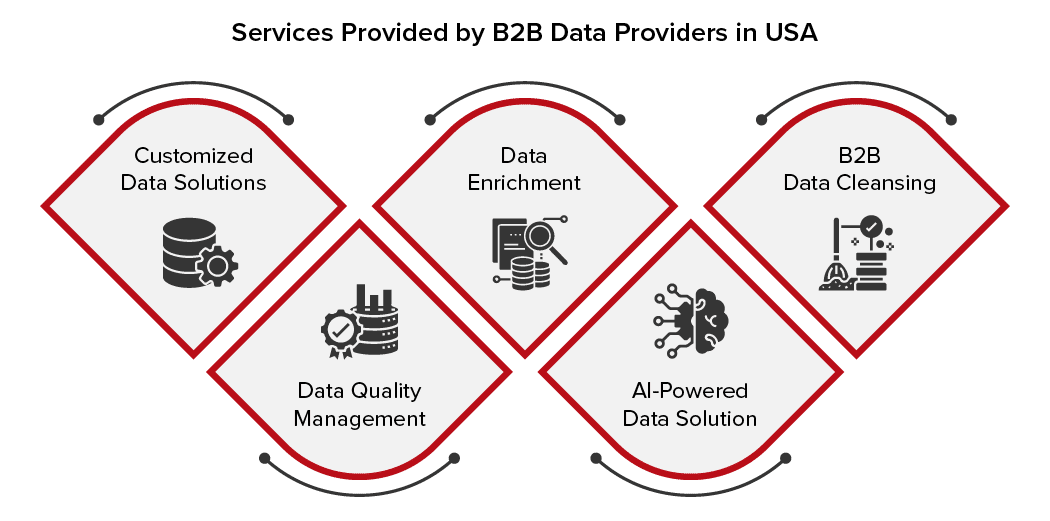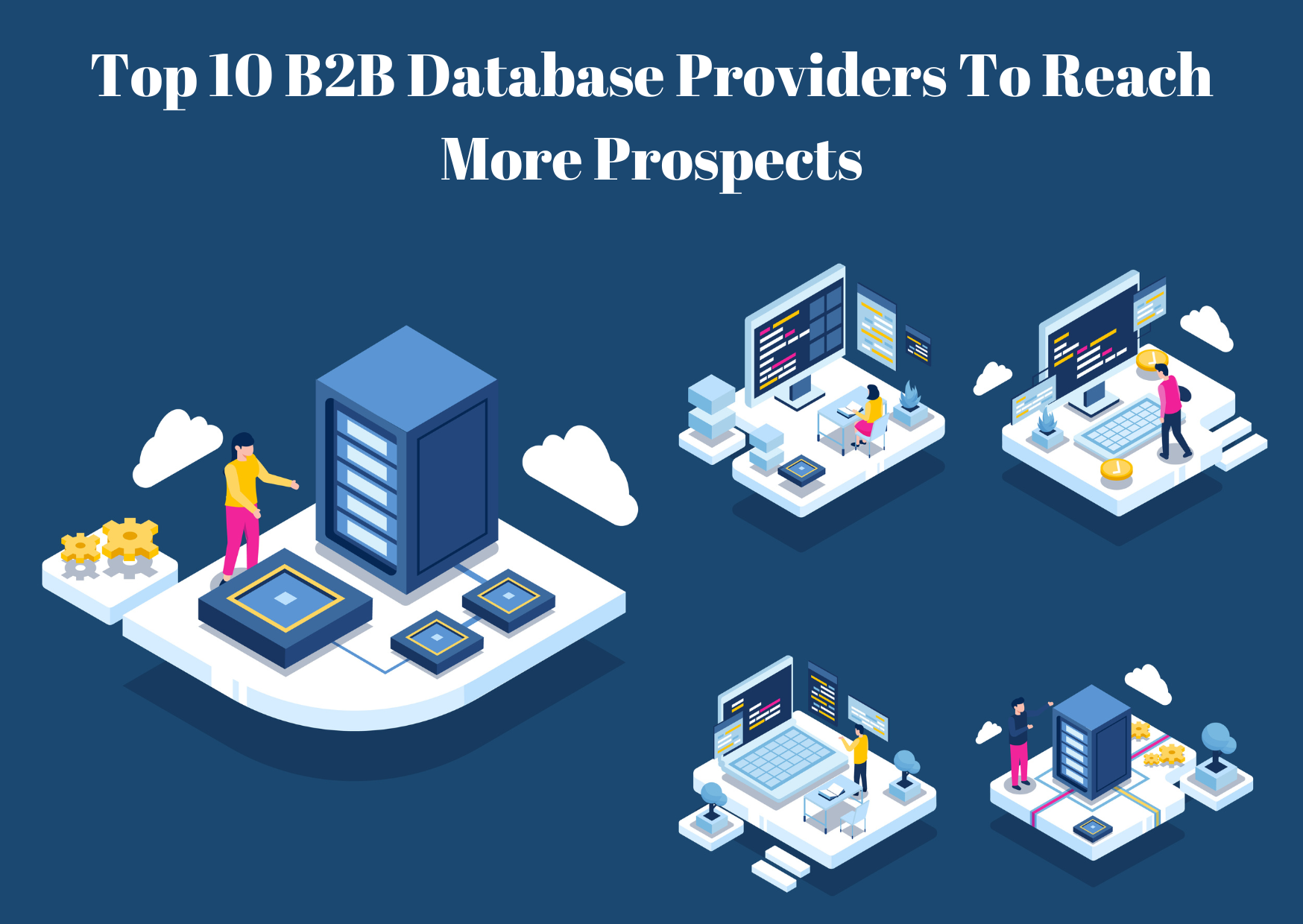Secret Features to Look for When Selecting a Data Source copyright
Picking a data source service provider is a vital choice that can dramatically affect your organization's information and procedures monitoring strategy. Among the crucial attributes to think about are scalability alternatives, which make sure that your system can adapt to expanding demands.
Scalability Options
When picking a data source copyright, comprehending scalability alternatives is critical to making certain that the chosen option can suit future growth. Scalability refers to the capacity of a database system to increase its capacity and performance in response to increased need. There are two key sorts of scalability: straight and upright.
Vertical scalability, or "scaling up," involves improving a single web server's sources, such as CPU, RAM, or storage space. This technique can be affordable and simple for smaller sized applications but might reach a restriction where additionally upgrades are not practical or as well expensive.
Straight scalability, or "scaling out," entails including a lot more web servers to distribute the tons. This strategy enables for higher flexibility and can suit substantial rises in data quantity and customer web traffic (database provider). It is particularly helpful for cloud-based data source services that can dynamically assign resources based on need

Safety Steps

When assessing protection measures, consider the execution of encryption methods (database provider). Data-at-rest and data-in-transit file encryption are important to make sure that delicate information continues to be secured, also in the occasion of a protection violation. Additionally, seek carriers that offer solid verification systems, such as multi-factor verification (MFA), to additionally improve gain access to control
Regular safety and security audits and compliance with sector requirements, such as GDPR or HIPAA, are a sign of a service provider's commitment to information defense. In addition, ask about their occurrence response strategy; a robust plan can minimize the impact of any possible protection occurrence.
Performance Metrics
Reviewing efficiency metrics is essential for companies to make sure that their selected database copyright fulfills operational needs. Secret efficiency metrics include response scalability, time, and throughput, which jointly determine the effectiveness of data source procedures under varying lots.
Feedback time is crucial, as it shows how quickly the database can refine inquiries and return outcomes. Organizations ought to try to find metrics that indicate typical feedback times throughout top and off-peak hours. Throughput, frequently measured in transactions per 2nd (TPS), supplies understanding right into the database's ability to take care of high volumes of requests without efficiency destruction.
Scalability evaluates the database's capacity to expand with the company's requirements. A robust database service provider must demonstrate upright and horizontal scaling capabilities, allowing for seamless changes as demands rise and fall. Furthermore, understanding latency, specifically in dispersed systems, can aid organizations review the responsiveness of the database throughout various geographical locations.
Customer Support
Trustworthy customer support is a keystone of efficient database administration, giving companies with the support required to optimize and solve issues efficiency. When choosing a data source provider, assessing the level of customer support they use is necessary. A durable support system should include several networks of interaction, such as phone, e-mail, and live chat, making certain that individuals can access aid whenever they require it.
Additionally, receptive assistance teams that are available 24/7 significantly boost the dependability of the webpage database solution. Prompt feedback times and efficient resolution of issues can substantially reduce downtime and increase overall efficiency. It is also helpful to consider the schedule of dedicated assistance personnel, who can supply tailored help based upon an organization's details needs.

Prices Structure
When considering a data source service provider, the rates framework is a pivotal variable that can substantially influence an organization's spending plan and general approach. A transparent and adaptable pricing design is essential for lining up the data source costs with service needs - database provider. Organizations ought to review whether the pricing is based on intake, per user, or a flat price, as each model can produce various financial ramifications with time
It is very important to examine any kind of additional expenses connected with the provider's services, such as data storage space costs, deal prices, and support charges. Some suppliers might offer tiered pricing, enabling scalability as the organization expands, while others could enforce rigorous limits that could end up being expensive as data requirements enhance.
Additionally, companies need to consider the long-term value of the database solution. While lower initial costs can be appealing, they may not account for future upgrades, upkeep fees, or integration costs. Conducting a complete cost-benefit evaluation will assist identify the most suitable pricing framework that stabilizes assistance, performance, and scalability, ultimately ensuring that the selected data source provider aligns with the company's functional and financial purposes.
Verdict
Finally, picking a data source copyright requires cautious consideration of different vital functions. Scalability alternatives make certain versatility to future growth, while durable safety steps safeguard delicate info. Evaluating efficiency metrics enables the recognition of effective databases, and obtainable client assistance improves the overall customer experience. A transparent rates structure better adds to educated decision-making. By completely assessing these aspects, organizations can make critical choices that straighten with their lasting objectives and functional demands.
Choosing a data source service provider is an essential decision that can dramatically impact your organization's operations and information monitoring strategy.When choosing a database copyright, understanding scalability options is important to making certain that the chosen solution can accommodate future growth. When choosing a data source supplier, reviewing the degree of consumer assistance they offer is important.When thinking about a database supplier, the prices framework is an essential variable that can dramatically influence a company's spending plan and total approach. Performing a thorough cost-benefit analysis will straight from the source aid recognize the most ideal rates framework that balances support, performance, and scalability, inevitably making certain that the picked database service provider aligns with the company's operational and financial purposes.